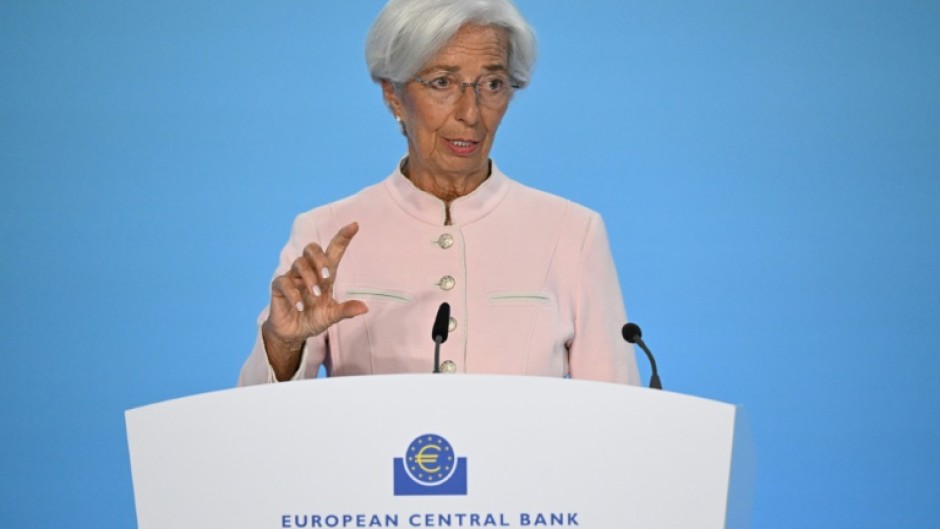ATHENS - For the first time in over a year, European Central Bank policymakers are expected to decide against raising interest rates again when they gather in Athens on Thursday.
Consumer prices in the 20-nation currency bloc rose at an annual rate of 4.3 percent in September, its lowest rate in almost two years.
The figure remains clearly above the ECB's two-percent target, but the pain of rising interest rates has been increasingly felt across the bloc.
The central bank, which holds one meeting outside its Frankfurt headquarters every year, looks set to follow in the footsteps of the US Federal Reserve and pause interest rate hikes for the time being.
All indications since the last meeting in September were that the ECB's current tightening cycle was "over", said Jack Allen-Reynolds of Capital Economics.
Currently, the ECB's key deposit rate sits at four percent, its highest mark in the history of the central bank.
But after deciding to hike at each of its last 10 meetings, raising rates at their fastest pace ever, "the ECB won't be in any rush to take further action", said ING bank analyst Carsten Brzeski.
The conflict in the Middle East would "further dampen eurozone growth prospects" and, along with rising oil prices, left the ECB in a more "complicated" position, Brzeski said.
"With all the new uncertainties, there hasn't been a better moment in the last 16 months for the ECB to take a pause than now," he added.
Some eurozone governments, such as Italy and Portugal, have voiced criticism of hard-to-swallow ECB rate increases, while the enthusiasm for more hikes has tempered among the 26 members of the ECB's governing council.
The slowing of eurozone inflation had shown that "our current benchmark rates are appropriate", French central bank governor Francois Villeroy de Galhau said.
Meanwhile, ECB President Christine Lagarde has acknowledged the "pain" felt by households as a result of aggressive rate hikes, but has cautioned against relenting too soon.
Her emphasis would more likely be on monetary policy staying tight for an "extended period", when the ECB shares its decision, Allen-Reynolds said.

